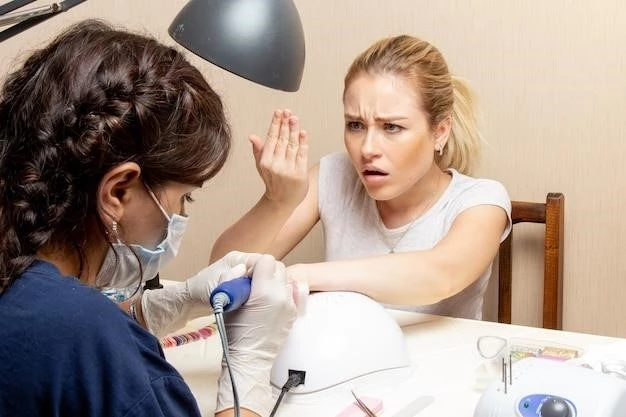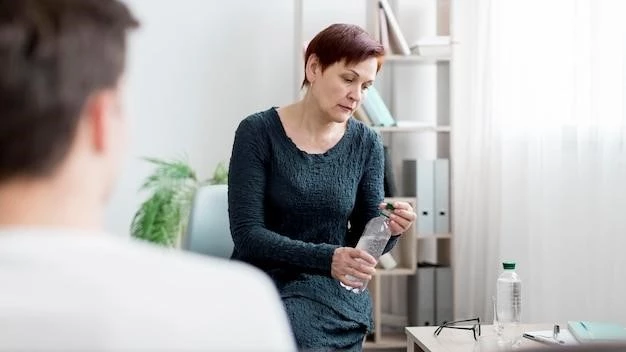Hypogonadism, isolated, hypogonadotropic
Here’s a comprehensive guide on Hypogonadism, isolated, hypogonadotropic, a condition that affects reproductive hormones. Understanding the symptoms, diagnosis, treatment options, management strategies, and prognosis can help individuals navigate this reproductive health issue successfully;
Understanding Hypogonadism
Hypogonadism is a condition where the body doesn’t produce enough gonadotropin-releasing hormone (GnRH), leading to hormone deficiencies that impact reproductive health. In isolated hypogonadotropic hypogonadism, the pituitary gland fails to release sufficient gonadotropins, affecting testosterone production in men and inhibiting ovulation in women.
For men, hypogonadism can result in infertility, reduced sex drive, mood changes, and decreased bone density. Women may also experience infertility, irregular periods, and reduced bone mass. In both sexes, delayed puberty and underdeveloped sexual characteristics can occur.
Diagnosis involves blood tests to measure hormone levels and imaging tests to assess the pituitary gland. Treatment options include hormone replacement therapy to restore testosterone levels in men and trigger ovulation in women. Managing hypogonadism involves regular monitoring of hormone levels and adjusting treatment as needed to optimize reproductive function.
Understanding the symptoms and impact of hypogonadism is crucial for individuals diagnosed with this condition. By working closely with healthcare providers, discussing concerns about fertility, sexual desire, mood changes, and bone health can lead to effective management strategies and improved quality of life despite the challenges posed by hypogonadotropic hypogonadism.
Symptoms of Isolated Hypogonadotropic Hypogonadism
Isolated hypogonadotropic hypogonadism can present with various symptoms that affect both men and women. In men, the deficiency of testosterone due to pituitary gland issues can manifest as infertility, reduced sperm production, decreased muscle mass, and diminished libido. Men may also experience fatigue, mood changes, and reduced bone density.
For women, isolated hypogonadotropic hypogonadism can lead to irregular periods, difficulty conceiving, and inadequate breast development. Women may also notice decreased sexual desire, mood swings, and osteoporosis due to hormonal imbalances affecting bone health.
Other symptoms that can occur in both sexes include delayed puberty, underdeveloped secondary sexual characteristics, and growth deficiencies due to inadequate hormone signaling. It is essential for individuals experiencing these symptoms to seek medical evaluation for proper diagnosis and treatment.
Addressing these symptoms early can help prevent complications related to hormone deficiencies. By recognizing the signs of isolated hypogonadotropic hypogonadism and seeking appropriate medical care, individuals can work towards managing their reproductive health effectively and optimizing their overall well-being.
Diagnosing Isolated Hypogonadotropic Hypogonadism
Diagnosing isolated hypogonadotropic hypogonadism involves a thorough evaluation by healthcare professionals. Blood tests are essential to measure hormone levels, including testosterone, luteinizing hormone (LH), follicle-stimulating hormone (FSH), and estradiol in women.
Imaging studies, such as magnetic resonance imaging (MRI) of the brain, can help identify any structural issues in the pituitary gland that may be causing hormone deficiencies. Additionally, genetic testing may be recommended to check for any underlying genetic causes of isolated hypogonadotropic hypogonadism.
During the diagnostic process, healthcare providers will also assess symptoms, medical history, and family history to gain a comprehensive understanding of the individual’s health status. It is crucial to communicate openly with your healthcare team, discuss any concerns or changes in symptoms, and follow through with recommended tests for an accurate diagnosis.
Early detection of isolated hypogonadotropic hypogonadism is key to initiating appropriate treatment and preventing further complications associated with hormone deficiencies. By actively participating in the diagnostic process, individuals can take proactive steps towards managing their reproductive health and overall well-being effectively.
Treatment Options for Isolated Hypogonadotropic Hypogonadism
Treatment for isolated hypogonadotropic hypogonadism aims to restore hormone levels and alleviate symptoms associated with hormone deficiencies. In men, testosterone replacement therapy is commonly prescribed to address low testosterone levels, improve fertility, boost libido, and enhance muscle mass.
For women, hormone therapy may involve stimulating ovulation using medications like gonadotropins to support fertility. Hormone replacement therapy can help regulate menstrual cycles, improve estrogen levels, and promote healthy bone density.

Depending on the underlying cause of isolated hypogonadotropic hypogonadism, treatment may also target any structural issues affecting the pituitary gland through surgical interventions or radiation therapy. Genetic counseling and management of any associated conditions may also be part of the treatment plan.
It is essential for individuals with isolated hypogonadotropic hypogonadism to work closely with their healthcare providers to monitor hormone levels, adjust treatment as needed, and address any related symptoms effectively. Following the prescribed treatment regimen and attending regular follow-up appointments can help optimize reproductive function and overall well-being.
Managing Isolated Hypogonadotropic Hypogonadism
Managing isolated hypogonadotropic hypogonadism involves a multidisciplinary approach to address hormone deficiencies and improve quality of life. Lifestyle modifications, such as regular exercise, a balanced diet, and adequate sleep, can support hormonal balance and overall well-being.
Close monitoring of hormone levels through regular blood tests is crucial to assess the effectiveness of treatment and make adjustments as needed. Compliance with prescribed medications, including hormone replacement therapy, is essential to achieve optimal outcomes and manage symptoms effectively.
Psychological support, counseling, and support groups can also play a vital role in managing the emotional impact of isolated hypogonadotropic hypogonadism. Open communication with healthcare providers about any changes in symptoms, concerns about fertility, or challenges with treatment can help tailor interventions to individual needs.
Engaging in regular follow-up visits with endocrinologists and reproductive health specialists is key to long-term management of isolated hypogonadotropic hypogonadism. By actively participating in their care plan and adopting healthy lifestyle practices, individuals can enhance their reproductive health and overall quality of life despite the challenges posed by this condition.
Prognosis and Outlook for Individuals with Isolated Hypogonadotropic Hypogonadism
The prognosis for individuals with isolated hypogonadotropic hypogonadism can vary based on the underlying cause, response to treatment, and overall health status. With proper diagnosis and management, many individuals can achieve improved reproductive function, enhanced fertility, and better quality of life.
Regular monitoring of hormone levels, adherence to treatment plans, and lifestyle modifications are essential for maintaining hormonal balance and managing symptoms effectively. By working closely with healthcare providers, individuals can address any challenges that may arise and make informed decisions about their reproductive health.
While isolated hypogonadotropic hypogonadism may present challenges, advancements in medical treatments and support services offer hope for individuals facing this condition. By staying informed, seeking appropriate care, and taking an active role in their health management, individuals can navigate the complexities of isolated hypogonadotropic hypogonadism with resilience and optimism.
Overall, a positive outlook is possible for individuals with isolated hypogonadotropic hypogonadism by embracing a holistic approach to care, maintaining regular follow-up appointments, and prioritizing their well-being. With continued support and commitment to their health journey, individuals can lead fulfilling lives and effectively manage the impact of this reproductive health condition.
